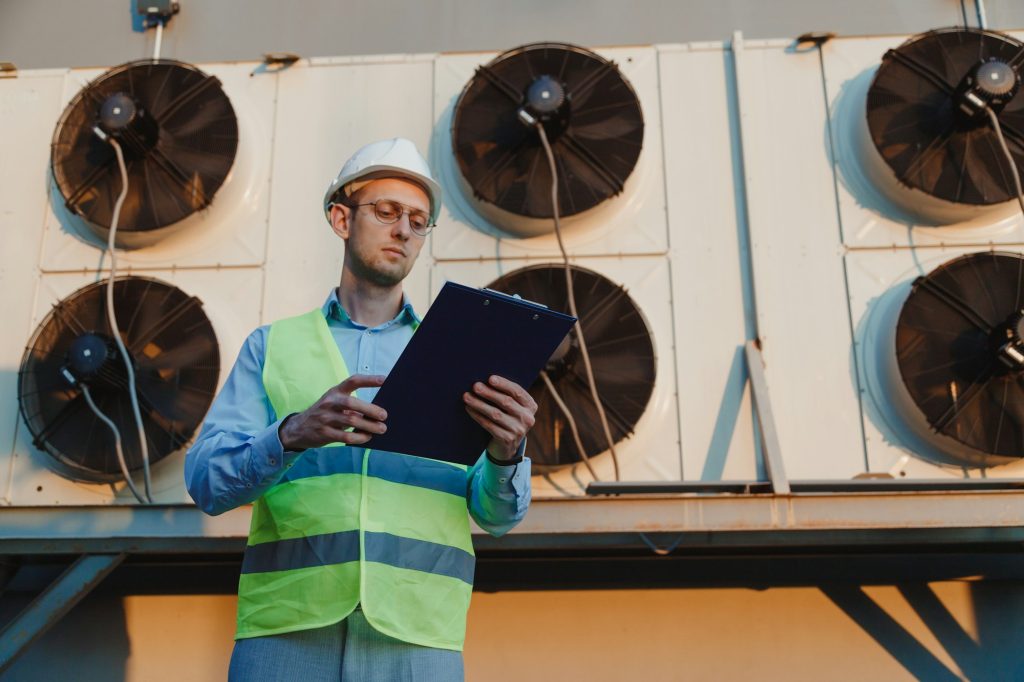
Mastering HVAC Maintenance
Mastering HVAC Maintenance for a Comfortable and Efficient Home
Ensuring your home stays comfortable year-round requires proper HVAC maintenance. In this comprehensive guide, we’ll cover preventive care for heating systems and signs indicating it’s time to replace your air filters. Follow these guidelines to master HVAC maintenance and create a comfortable, energy-efficient home environment.
I. Preventive Maintenance for Heating Systems:
Maintaining your heating system is essential, especially during colder months. Here’s how to keep it running smoothly:
– Schedule Regular Inspections: Have a qualified HVAC professional inspect your system regularly to catch issues early.
– Clean and Lubricate: Clean components like burners and heat exchangers and lubricate moving parts for optimal performance.
– Calibrate Your Thermostat: Ensure your thermostat is calibrated correctly for accurate temperature control and energy efficiency.
– Inspect Ductwork: Seal any leaks in your ductwork to prevent heat loss and ensure even heating.
– Check Gas Connections: For gas-powered systems, inspect and tighten connections to enhance safety and efficiency.
II. Signs Your HVAC Air Filters Need Replacement:
Air filters play a crucial role in your HVAC system’s efficiency. Look out for these signs that it’s time to replace them:
– Visible Dirt and Debris: If you can see dirt buildup or debris on the filter, it’s time for a replacement.
– Increased Energy Bills: A clogged filter can cause your system to work harder, leading to higher energy bills.
– Uneven Heating or Cooling: If some rooms are warmer or cooler than others, your filter may be clogged.
– Unusual System Noises: Strange noises like banging or whistling could indicate a clogged filter.
– System Overheating: Frequent overheating or system shutdowns may be caused by a dirty filter.
III. How Often Should You Replace Air Filters:
– Standard Filters (1–3 inches thick): Replace every 1-3 months, depending on usage and household factors.
– High-Capacity or HEPA Filters: Replace every 6–12 months, or as recommended by the manufacturer.
IV. DIY Steps to Replace Air Filters:
Follow these simple steps to replace your HVAC air filters:
– Turn Off the HVAC System: Always turn off the system before replacing the filter.
– Locate and Assess the Filter: Find the filter and check its condition.
– Determine Filter Size: Refer to your HVAC system manual for the correct filter size.
– Install the New Filter: Ensure proper airflow direction and follow any marked indicators on the filter.
– Reset Filter Indicator: If applicable, reset or replace the filter replacement indicator.
V. Proactive Tips for Air Filter Maintenance:
– Regular Inspections: Check the filter periodically for dirt buildup, especially during peak usage seasons.
– Upgrade Filters When Necessary: Consider upgrading to advanced filters for better air quality without sacrificing airflow.
– Professional Maintenance: Schedule annual HVAC maintenance by a professional to ensure your system is running efficiently.
By following these tips for heating systems and air filters, you can master HVAC maintenance and enjoy a comfortable, energy-efficient home. Stay proactive and prioritize your HVAC system’s care for long-lasting performance.


